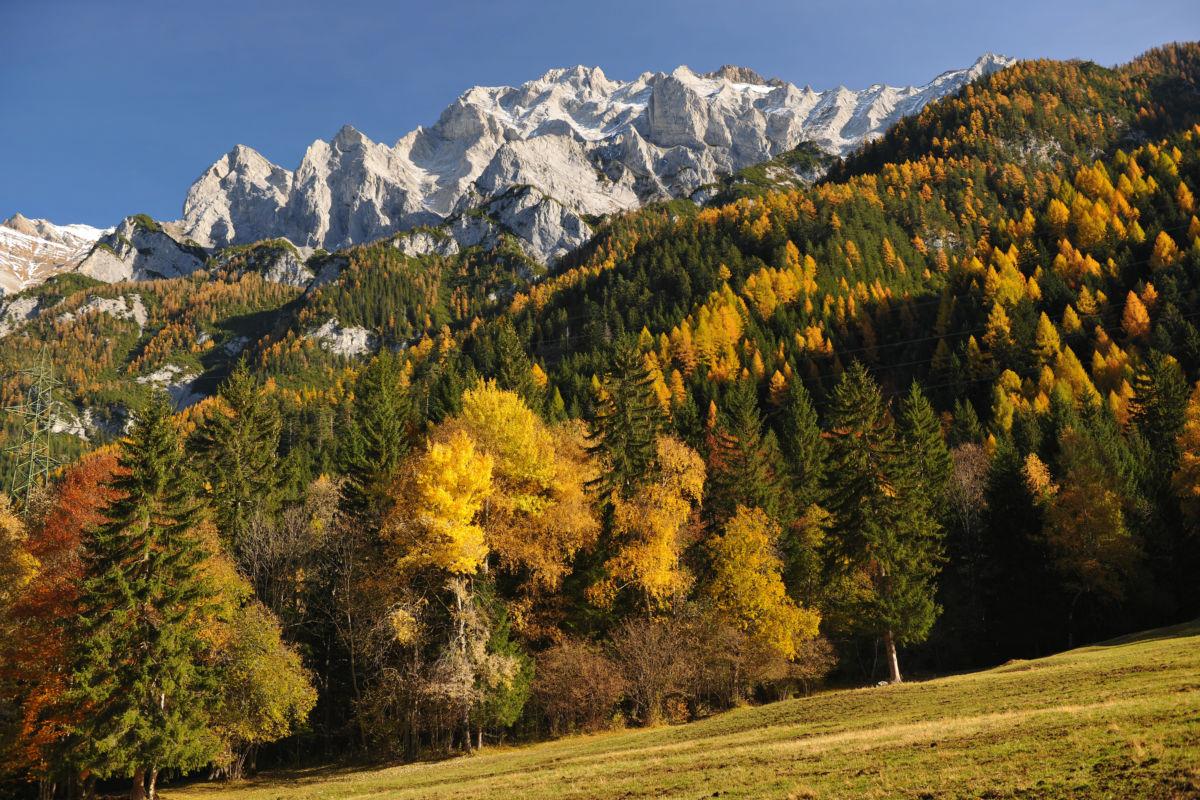
Swiss university prepares for twenty-year forest experiment

The University of Basel has started work on establishing a “forest laboratory” near the city which will allow scientists to study the effects of climate change on local trees for the next two decades. It is the only long-term project of its kind in Europe.
The research team wants to find out how local tree species react to drought and if mature trees are able to adapt their metabolism to a change in weather conditions, the university announced in a press releaseExternal link on Tuesday.
The area of forest which will be studied is approximately 15,000 square metres, and is a good representation of the type of mixed forest typically found in Switzerland. It includes species such as the copper beech, oak, Scots pine and white fir, the university wrote. Most trees are between 80 and 150 years old.
+Swiss forests in a race against time
The experiment’s most visible element was installed on Tuesday: a 50-metre-high construction crane in the centre of the forest. This will transport researchers via gondolas into the tree tops and allow them to observe changes in the foliage and conduct experiments above ground.
The whole area will also be covered by a rain canopy, to be installed in 2019. The aim is to prevent rainwater from reaching the ground and to thus simulate drought conditions.
The infrastructure costs come to some CHF2 million ($2.1 million), and the cost of the upkeep will be determined by the amount of third-party funding that can be raised in future. The experiment is primarily funded by Basel university, the Swiss National Science Foundation SNFExternal link, and the Swiss government.
Ecological experiments are generally conducted for only three to five years, but trees grow very slowly and some local species such as the red beech live up to 300 years, the university wrote.

More
Celebrating the International Day of Forests

In compliance with the JTI standards
More: SWI swissinfo.ch certified by the Journalism Trust Initiative






























You can find an overview of ongoing debates with our journalists here . Please join us!
If you want to start a conversation about a topic raised in this article or want to report factual errors, email us at english@swissinfo.ch.